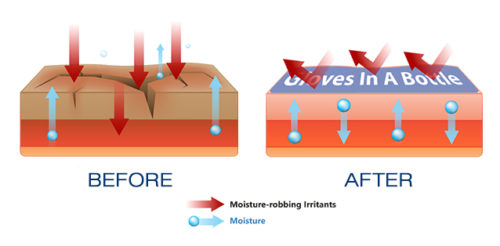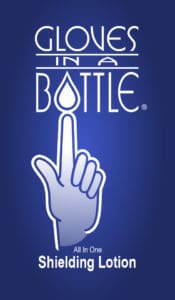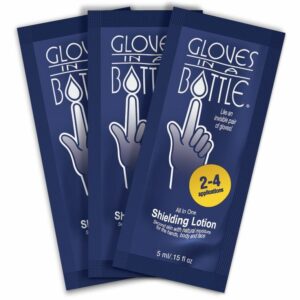Irritating blisters on fingers, peeling skin, itchy rashes, cracked painful skin that keeps recurring – experience any one of these symptoms and you can’t seem to find out what’s going on? Then you may likely be experiencing hand eczema or contact dermatitis.
When you visit the dermatologists, he may diagnose your condition as allergic reaction or atopic dermatitis, which is commonly known as eczema. If you do your own research, you may come across so many medical terminology that sounds confusing and even hard to pronounce like pompholyx (pom-po-liks).
What is Hand Eczema or Hand Dermatitis?
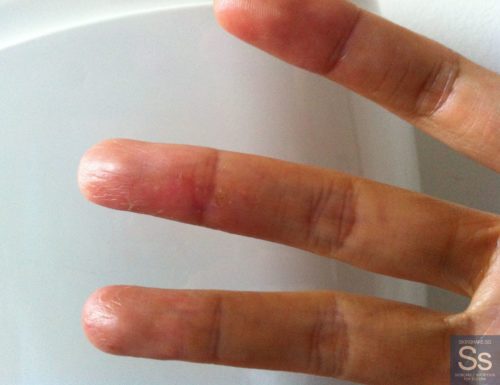
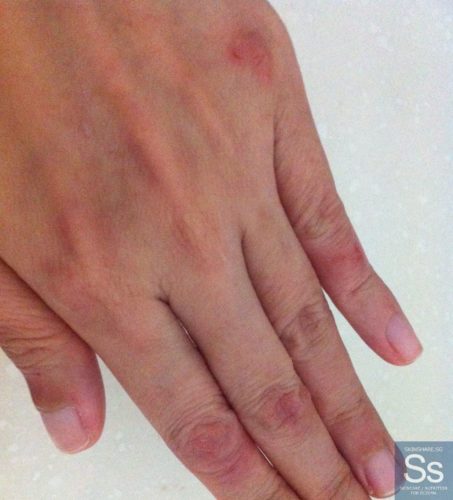
Hand eczema is a skin condition that affects the fingers or palms. It may start at some finger tips or parts of the palm, as a small itchy patch, then progress over time to cause inflamed, painful skin which may further crack or develop blisters. As we use our hands for most daily activities as well as for some, to complete tasks related to our occupation, it will be difficult to heal or continue to aggravate to the point of infection.
Who Gets Hand Eczema?
- It tends to affect adult or elderly more commonly, but may occur at any age.
- You may be more prone to developing hand dermatitis if there is a history of atopic dermatitis or allergy in your family. This is a genetic disposition which is unavoidable.
- According to American Academy of Dermatology, you also have a higher risk of developing hand eczema if you previously had atopic dermatitis (often called eczema) as a child but outgrew it.
- If your work involves constantly exposing your hands to chemical like hairdressing,
painting or detergent like cleaning and housework. In professions where high standard of hygiene is required, hand sanitizer is used frequently. Nurses, healthcare professionals, pharmaceutical technicians, infant care and childcare teachers often suffer from dry and cracking hands.
Hand Eczema Care & Natural Treatment
Your hands and fingers are constantly in contact with many physical objects and liquids, including water. Thus, having hand dermatitis can be a very difficult situation to continue our daily activities comfortably. Here are some guidelines on how to treat, care and naturally heal your affected skin:
Protect with Rubber or Latex Free or PVC disposable gloves
There are many hand gloves in a market, but depending on the activity that you are doing and the state/condition of your skin, you can choose to select these type of hand gloves to protect your broken and irritated skin. If your skin is still not badly injured or infected, the rubber gloves would be a desirable choice because it is reusable and hardy. Only downside is that it may be a bit disruptive to the activity because of its bulkiness. Latex free or PVC disposable gloves are thinner and provides easier movement but it can break easily.
Apply a shielding lotion as a form of invisible glove
Dermatologists has been recently been recommending the shielding lotion as the more effective treatment for hand eczema. Shielding lotion works differently from a conventional moisturizer. If you have hand eczema, you will need a protecting lotion which also acts as a moisturizer. A shielding lotion bonds with the outer layer of the skin and protects it from outside irritants and chemicals, so it will prevent skin conditions from developing or it will help an existing condition to heal.
Gloves in a Bottle is a hypoallergenic, safe for children, non-greasy and breathable shielding lotion. It has many very good customer testimonials, especially effective for hand eczema and contact allergy or dermatitis.
Dr. Peter Helton
Dermatologist
Newport Beach, CA
“We have been treating hand eczema patients with “Gloves In A Bottle” as a natural skin care treatment.
We have achieved good results with your product such that the patients have been able to stop their medications and continue only with the shielding lotion to control their hand eczema condition. I feel that it is one of the best moisturizing protective creams on the market.
Identify the irritant – prevention is the best medicine
Since we use our hand daily, it comes into contact with many external allergens. These common allergens are possible hand eczema causes:
- Chemicals in hygiene care products such as hand soap, shampoo, baby wipes and dishwashing liquid.
- Nickel, which is used in jewelry and belt buckles.
- Flavorings, fragrance, preservatives, which is used in many products, such as perfumes, cosmetics, mouth rinses and flavorings
- Formaldehyde, which is in preservatives, disinfectants and clothing
It is sometimes not easy to identify the trigger allergen for your hand eczema. You may observe if the rash gets aggravated after doing housework like washing dishes with dish washing liquid. Or did you recently change a new brand of shampoo or body shower foam?
Sometimes, your job nature or hobby that you do may put you at a higher risk of contact dermatitis. This especially happens when your skin is dry and cracks, with the weakened skin barrier, external irritants may aggravate your skin. Examples are:
- Healthcare workers who constantly use hand sanitizers and alcohol rubs.
- Hairdressers and beautician
- Cleaners and housewife
- Gardening, painting work
Prevent Infection from Scratching or Blisters
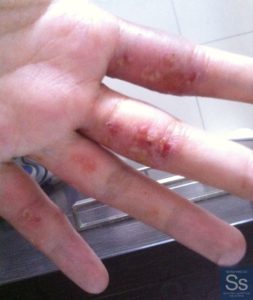
It is important to prevent hand eczema infection so that the skin can heal faster with proper care and protection. If there are broken skin or blisters with wound or from scratching, wash with a mild antiseptic wash like Hospigel. Keep the rash dry and clean, applying a mild antiseptic ointment.
Another possible home remedy to relief hand dermatitis itching is to apply calamine lotion. To relief itching and have a better night rest, you may consider oral antihistamine which can be purchased over the pharmacy counter.
Hand dermatitis can take a long time to cure completely. However, if the rash does not improve or continues to spread after 2–3 of days of self-care, or if the itching and/or pain is severe, you should visit a GP or your family doctor for further advice.

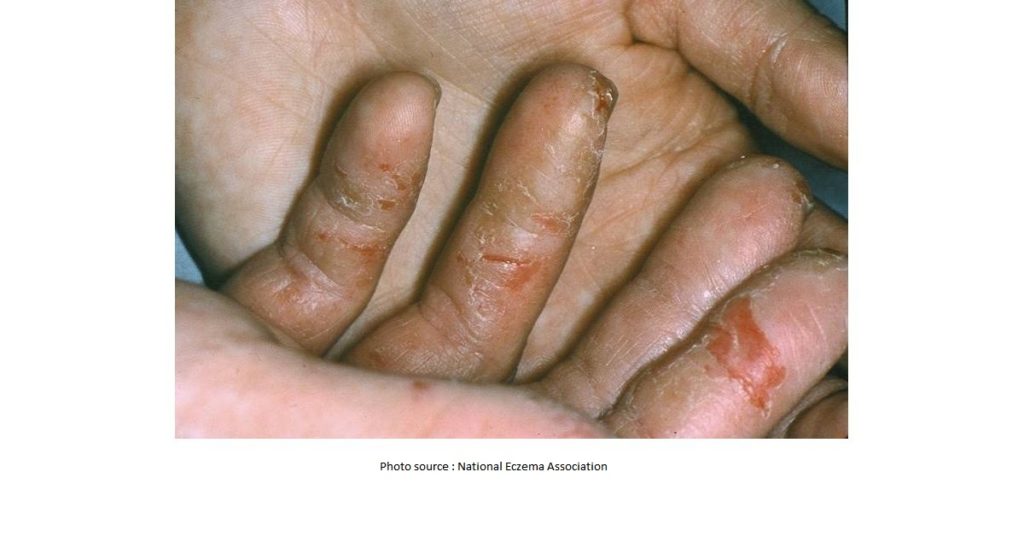
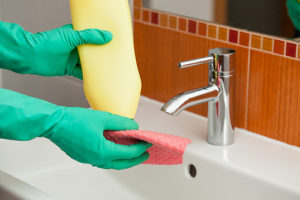 painting or detergent like cleaning and housework. In professions where high standard of hygiene is required, hand sanitizer is used frequently. Nurses, healthcare professionals, pharmaceutical technicians, infant care and childcare teachers often suffer from dry and cracking hands.
painting or detergent like cleaning and housework. In professions where high standard of hygiene is required, hand sanitizer is used frequently. Nurses, healthcare professionals, pharmaceutical technicians, infant care and childcare teachers often suffer from dry and cracking hands.